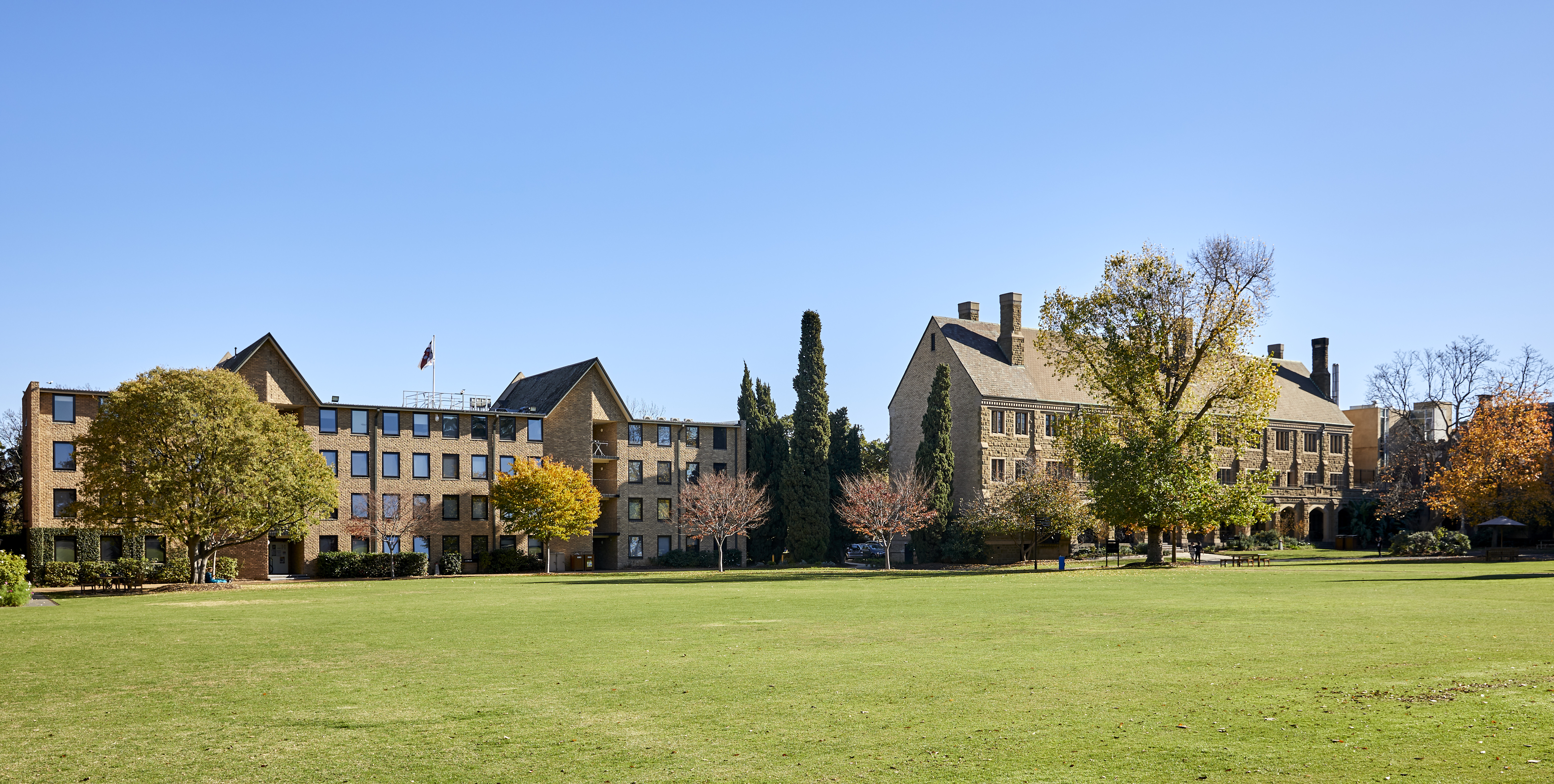Our vision at Trinity College is to be a vibrant, diverse, inspiring and inclusive community.
Our story
Trinity College was established in 1872, making it the oldest college at the University of Melbourne. Our proud, rich history is built on Anglican values and has positioned us as one of Australia’s most reputable educational institutions, with a strong global network of successful and engaged alumni.
To maintain our high standing and to build on our achievements, we know we need to look ahead, so continually mould our priorities and traditions to keep pace with the evolving higher education environment and societal trends.
We’ve taken this forward-thinking approach for many decades, for instance by becoming the first university college in Australia to admit women as non-resident students in 1883, and the first to provide a residential college facility for women from 1886 at the Trinity College Hostel (now Janet Clarke Hall). Trinity became fully co-residential in 1974.
We then embraced international education in 1990 by establishing a Pathways School to make the University of Melbourne more accessible to overseas students. In 2001, we became one of the first colleges to provide scholarships to Indigenous students, and have actively led initiatives to support First Nations students in higher education ever since.
Trinity's 2030 Strategy
In 2023, Trinity began the process of creating a new College strategy for 2030 – one that builds on the College's last strategic plan, created in 2017. Learn more about Trinity's 2030 Strategy in the video below or via this PDF.
Our values
Our vision is driven by our values.
- Being respectful of ourselves and others.
- Aspiring for excellence.
- Seeking diversity and inclusivity.
- Acting with integrity.
- Fostering a sense of belonging.
Trinity's purpose
We will be guided by our College purpose, and the purpose of each of our three educational divisions, to fulfil our vision.
Trinity College purpose
We are an educational community that encourages meaningful contributions and promotes lifelong connections.
Residential College purpose
To create a nurturing community where every individual thrives, embracing their unique identities. It fosters a student-led journey of personal and academic growth, encouraging a life-long commitment to positive contribution to society.
Pathways School purpose
To prepare students for success at university by supporting them to become increasingly independent, critical and creative thinkers. Embedding within graduates the skills and qualities to become cross-cultural learners who can confidently navigate their own path within a global community.
Theological School purpose
To serve the Anglican Church, the academy, and society through theological research and by providing theological education at all tertiary levels, and, in doing so, prepare students for vocations in scholarship and all forms of Christian ministry.

